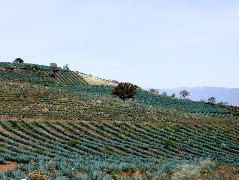
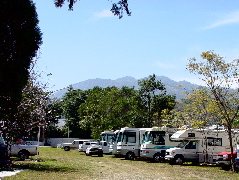
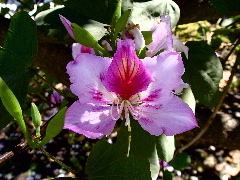
| From Laguna La Maria, our route turned decisively northward back toward the United States. A long day's drive carried us around the congested outskirts of Guadalajara and across the agave-and-tequila producing region of central Jalisco state to the high-altitude city of Tepic. The spectacular blossoms of a flowering tree welcomed us to a comfortable but otherwise unremarkable urban RV park. From this base we were able to explore more fully a pair of exceptional birding sites that we had reconnoitered earlier from Paraiso Miramar, forty miles away. This account covers our visits on both occasions. |
 |
 |
 |
|
|
|
|
| High in the mountains southwest of Tepic we revisited a protected ecological area, the San Juan Reserve, with overnight facilities at the Rancho La Noria. |
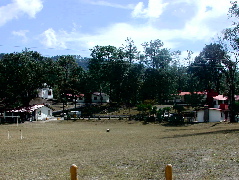 |
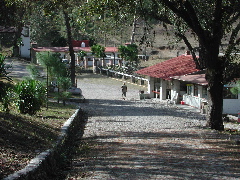 |
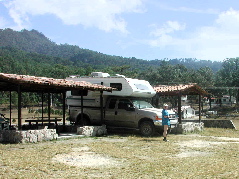 |
|
|
Wendy Forster |
Carolyn |
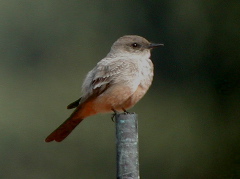 |
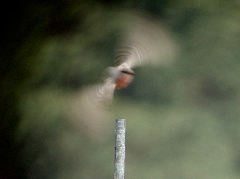 |
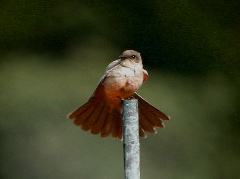 |
| From Rancho La Noria, birding trails radiated up into the montane forests. |
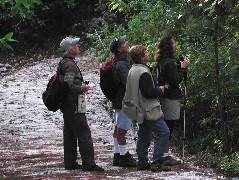 |
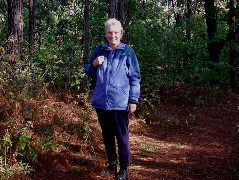 |
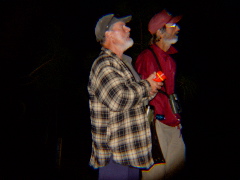 |
|
Walt Borden, Coen Dexter, June Whitten, Brenda Wright |
|
Coen Dexter, Chris Tenney |
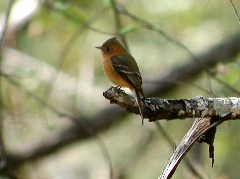 |
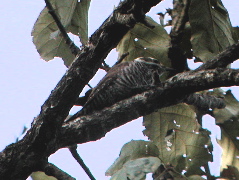 |
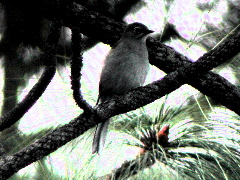 |
|
|
|
|
| On the road down the mountain, we found a forested gulch choked with wildflowers and aswarm with hummers. We counted at least six species, including the tiny and elusive Bumblebee Hummingbird, the second smallest bird in the Western Hemisphere. |
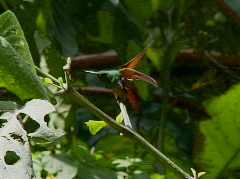 |
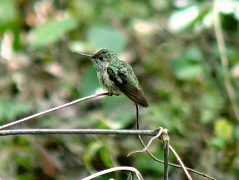 |
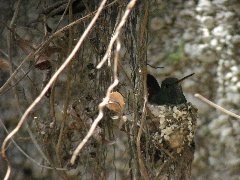 |
|
|
|
|
| The other remarkable birding site accessed from Tepic, a scenic pullout beside a busy highway north of the city, featured only a single species. El Mirador del Aguila (Eagle Overlook) was the only reliable location for finding one of Mexico's most flamboyantly plumaged and elusive birds. Looking down a forested mountain valley in the late afternoon, we were thrilled to see flocks of Military Macaws approaching, and to hear their cries drifting up to us as they settled in to roost directly below. For many of us, no other birding spectacle in Mexico quite matched this one. |
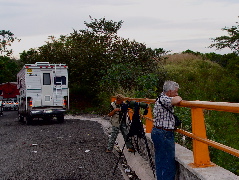 |
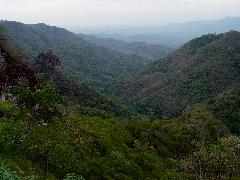 |
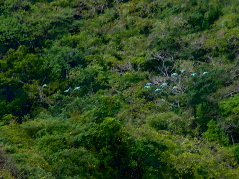 |
|
Wendy Forster, Charlie |
|
|
|
|